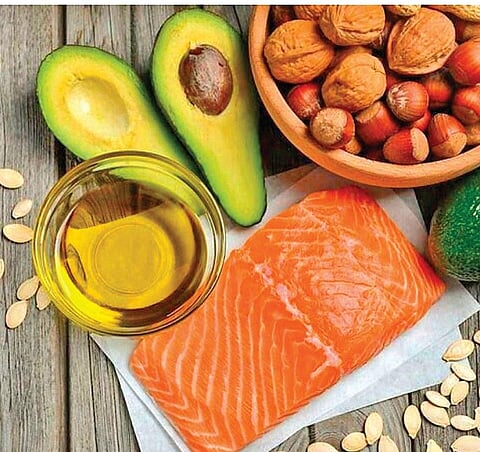Keto takes backflip after new study finds it may cause harm if followed for too long
Easily one of the fastest-growing dietary trends of recent times, the Keto diet has now taken a backflip. According to a new study, Ketogenic diet may cause harm if followed for long periods, youngsters tend to do. Published in an online journal called Nature Metabolism, the study by Vishwa Deep Dixit of Yale School of Medicine, US, was carried out on mice which were put on a Keto diet. At first, the mice showed a reduction in blood sugar levels and inflammation. After a week, they started becoming obese.
The research went on to highlight the interaction between metabolism and the immune system, how these coordinate and maintain the functioning of healthy tissues. It was found that a Keto diet expanded gamma-delta T-cells, which leads to weight loss. But if followed for long periods, the diet program increases protein, and subsequently fat. This is because protective gamma delta T-cells are lost in the fat and, therefore, metabolism suffers. According to experts, in a Keto diet body gets 99 percent calories from fats and one percent from carbs. In the absence of carbs, the body's glucose level starts plummeting and the body begins burning fat to raise the energy level.
This process produces a chemical called ketone bodies, that work as an alternative source of fuel. “In a Keto diet, the pathway of metabolism changes as a source of energy production and energy consumption of the body changes. It adopts alternate metabolic pathways and uses stored carbs and fats as energy sources and one starts reducing weight fast. But when people start consuming unhealthy processed fats instead of heathy ones like nuts, cheese, whole eggs, seeds and others, the body starts storing fat that leads to obesity,” says Dr Priyanka Rohatgi, Chief Nutritionist, Apollo Hospitals, Bangalore.
According to recommendations of the Indian Council of Medical Research, one kg body weight requires one gram of protein. If someone is 50 kg then he/she needs 50 grams of protein daily. “For growing children, we recommend one and a half grams. Similarly, for those who play sports we advice two grams. But in Keto diet, stones in the kidney can be formed if followed continuously and to absorb this access in protein, the kidney has to work very hard, thus harming the organ,” says Dr Arvind Bagga, Paediatric Nephrologist, AIIMS, Delhi.
In addition to this, when fat starts burning in the body, too many ketones start getting stored. The condition is called ketoacidosis. Due to this, the blood becomes acidic and could lead to liver, kidney, and brain damage. “Keto diet leads to a deficiency of minerals and vitamins in the body as a low-carb diet lacks key nutrients like magnesium, calcium, potassium among others. Deficiency of these leads to nausea, vomiting, and constipation. It also disturbs metabolism,” says Dr Shreekant Sharma, Senior Consultant, Internal Medicine, Moolchand Hospital, Delhi, adding, “Carbs are also essential for maintaining a healthy gut. They are a good source of fibre that promotes clean gut but most of the fibre rich foods such as banana, grapes, savoury beans, crunchy peas and others are excluded from the diet.” Keto is completely discouraged for the elderly, diabetics, those with static lifestyles or ones suffering from any kind of kidney ailments.
The picture is not completely bleak. Keto has advantages too such as being healthy for children suffering from an epileptic seizure. It’s also observed to work well for certain types of cancer as it stresses cancer cells. People with acne and PCOD may benefit as it reduces the production of hunger hormones. The bottom line is to choose wisely. Think about your body’s requirements and practise balance.
WATCH OUT
Keto diet leads to a deficiency of minerals and vitamins in the body as a low-carb diet lacks key nutrients like magnesium, calcium, potassium among others. Deficiency of these leads to nausea, vomiting, and constipation. It also disturbs metabolism. Keto is discouraged for the elderly, diabetics, those with static lifestyles or ones suffering from kidney ailments.

